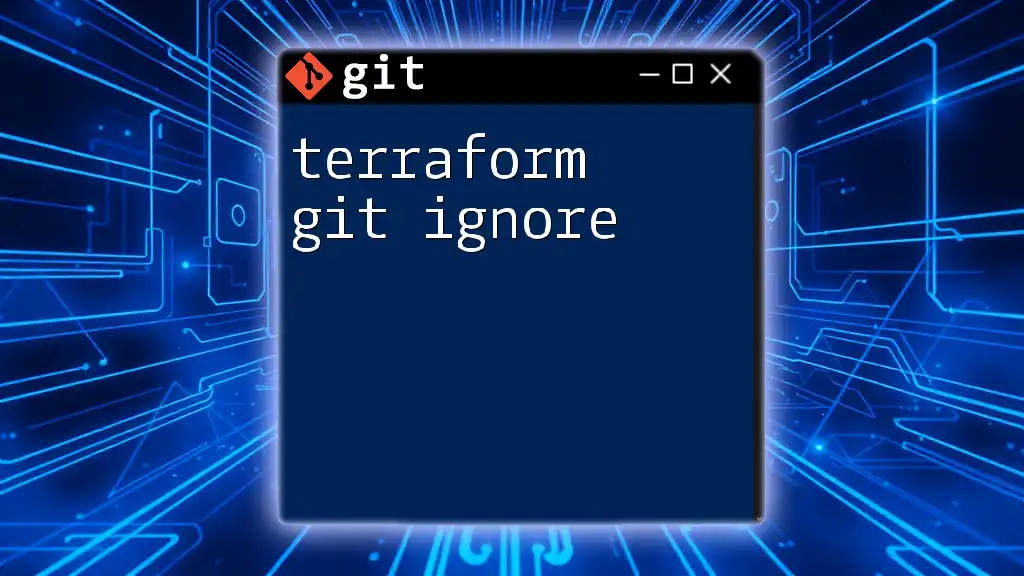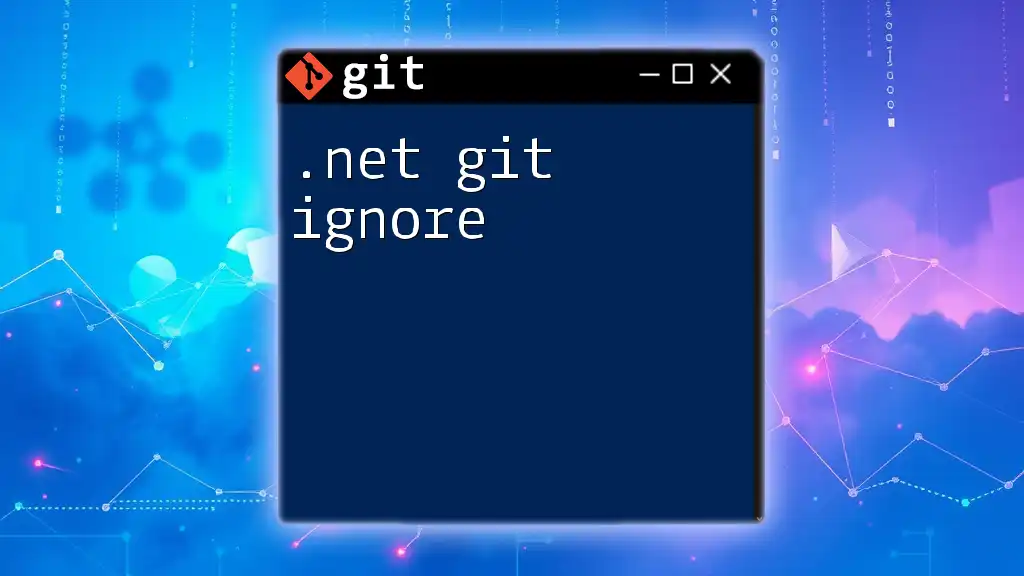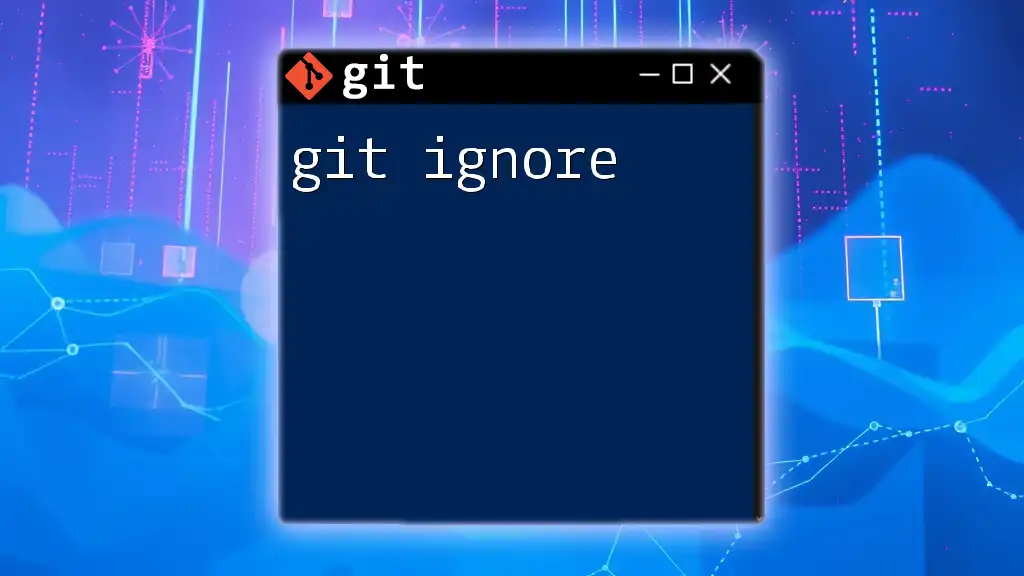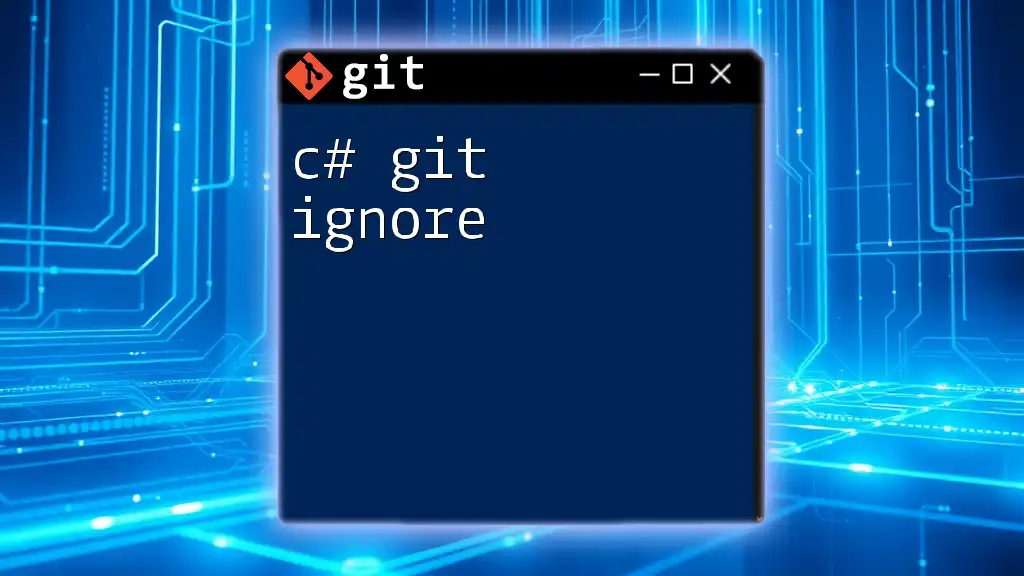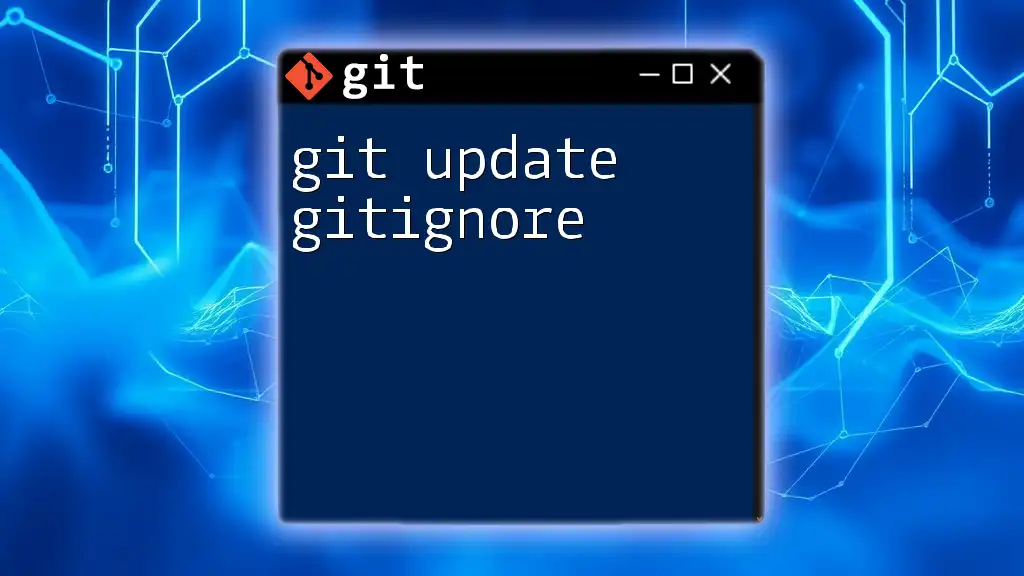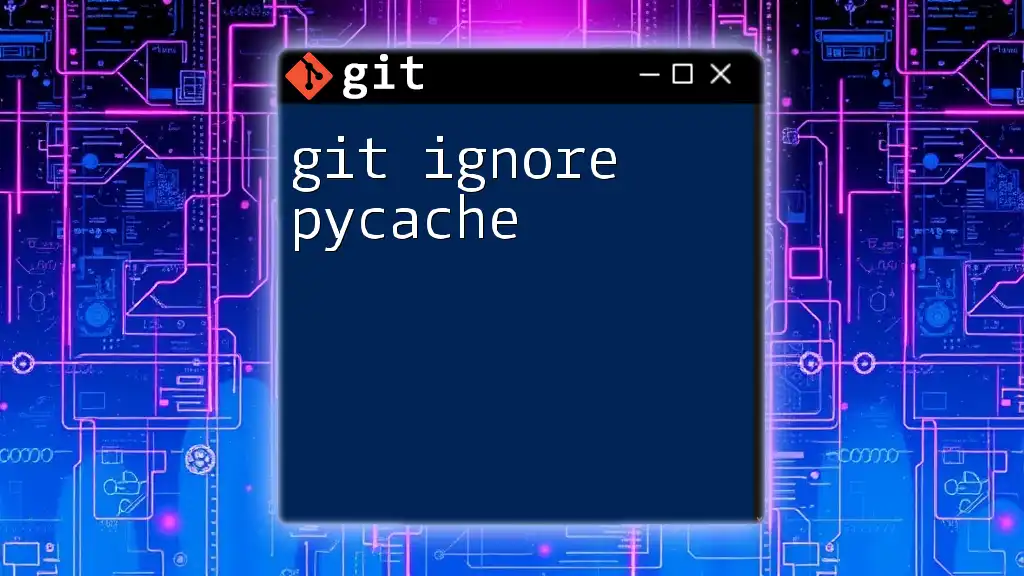In Terraform projects, you can use a .gitignore file to exclude sensitive files and directories (like `.tfstate` files) from being tracked by Git.
Here’s a sample `.gitignore` content for a Terraform project:
# Terraform Files
*.tfstate
*.tfstate.*
*.tfvars
*.tfvars.json
.crash.log
.override.tf
.override.tf.json
.terraform/
Understanding Git Ignore
A `.gitignore` file is essential in any Git repository. It specifies which files and directories Git should ignore and not track. Understanding how the `.gitignore` file works can significantly enhance your Terraform project management, preventing sensitive information from being accidentally shared and ensuring that your repository remains clean.
When Git processes a `.gitignore` file during commits, it ignores files and directories listed within it. This is crucial for Terraform projects, where certain files, like state files and backup configurations, shouldn’t be included in version control.
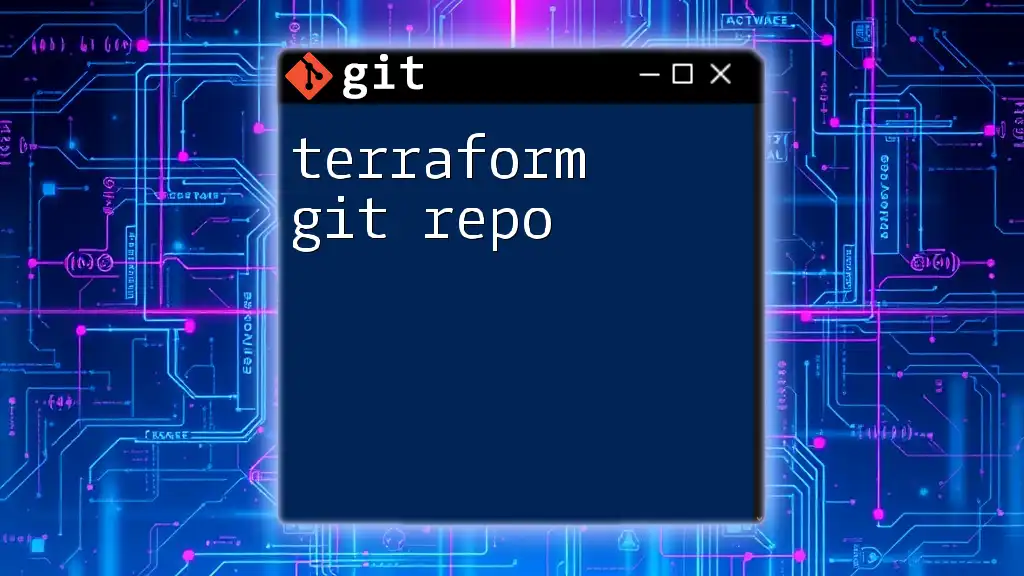
Common Terraform Files and Folders
In a standard Terraform project, you will encounter various file types:
- Configuration Files: These typically have a `.tf` extension and define the infrastructure as code.
- State Files: The `terraform.tfstate` file keeps track of the managed infrastructure's current state. It's vital for Terraform operations but can contain sensitive information.
- Temporary Files and Directories: During execution, Terraform generates temporary files stored in the `.terraform` directory.
Recognizing which files to include in your `.gitignore` can protect sensitive data and prevent unnecessary clutter in your repository.
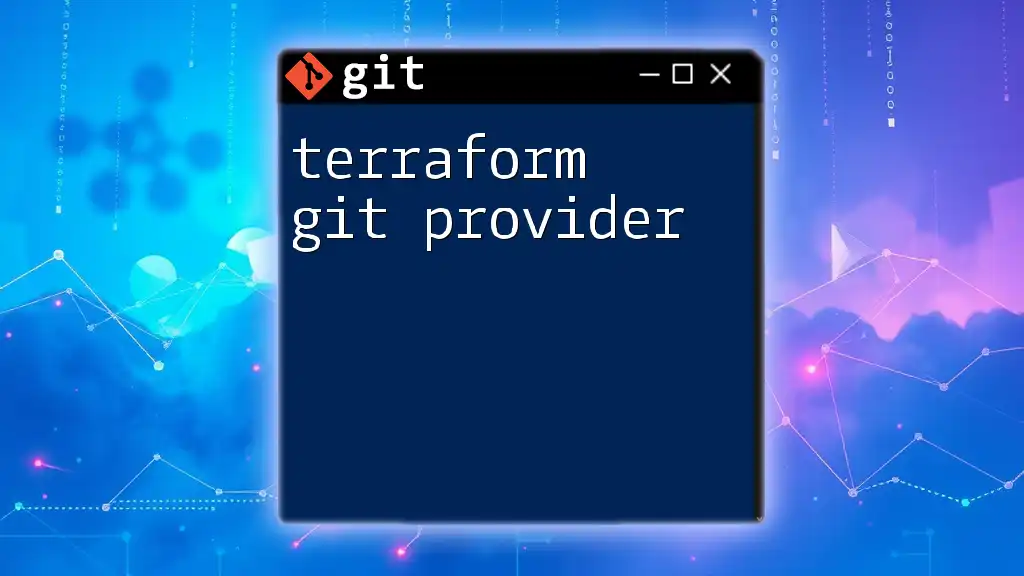
Default Terraform Git Ignore Template
Creating a basic `.gitignore` file for your Terraform project is a good practice. Here’s an example that covers essential files you should ignore:
# Terraform files
*.tfstate
*.tfstate.*
crash.log
# Local .terraform directory
.terraform/
# Terraform variable files
*.tfvars
.terraform.lock.hcl
Explanation of Each Entry
-
`.tfstate` and `.tfstate.*`: These patterns ensure that all state files are ignored. State files can contain sensitive data and should never be tracked in version control.
-
`crash.log`: This file logs any crashes that occur during Terraform operations. Tracking it isn’t necessary and can lead to confusion.
-
`.terraform/`: Ignoring this directory prevents Git from tracking Terraform plugins and cached files, which are meant to be local and specific to the current environment.
-
`*.tfvars`: Variable files typically contain sensitive data or configurations specific to a given environment, so they should be excluded from version control.
-
`.terraform.lock.hcl`: This file is generated to lock the provider versions. Tracking changes to it manually isn’t necessary.
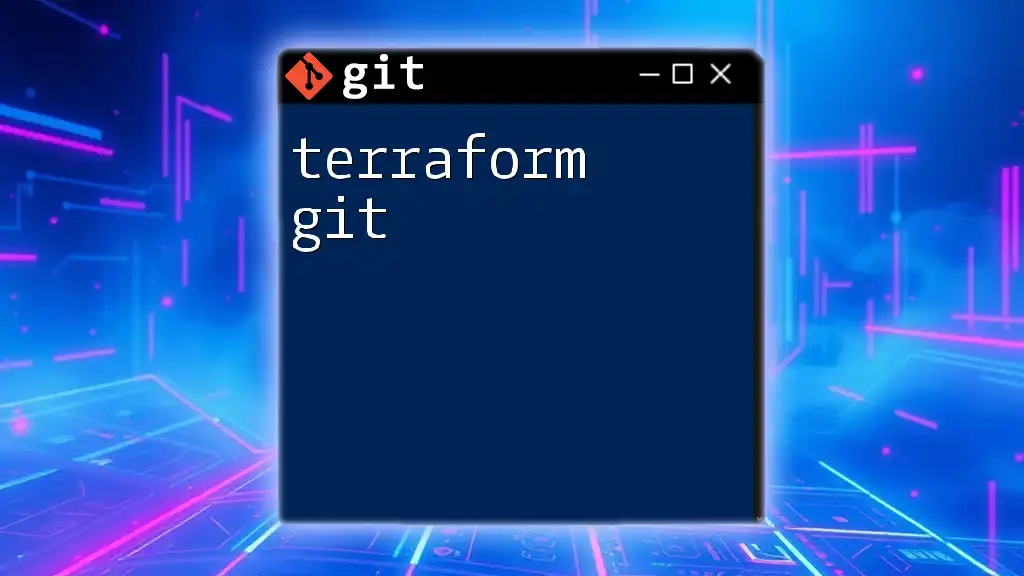
Customizing Your Git Ignore for Terraform
Every project is unique, and you may have specific files that you want to ignore. Customizing your `.gitignore` to fit your project needs ensures that sensitive or unnecessary files do not pollute your Git history.
Consider an example of a personalized `.gitignore`:
# Ignore Terraform state files
*.tfstate
# Ignore sensitive variable files
secret.tfvars
# Ignore backup files
*.backup
Best Practices for Customizing Your `.gitignore`
-
Think About Security: Always prioritize security when deciding what to ignore, especially for sensitive information. If a file has the potential to expose credentials or private data, it should be in your `.gitignore`.
-
Keep It Simple: Avoid cluttering your `.gitignore` with too many entries. Only include files and patterns necessary for your project.

Managing Sensitive Information
Handling sensitive information in Terraform configurations is critical. Hardcoding credentials or secret keys in your configuration files can pose severe security risks. Instead, adopt these best practices:
- Use environment variables to store sensitive data.
- Consider using Terraform’s built-in secret management features or external tools like HashiCorp Vault to manage sensitive information securely.
Utilizing `.gitignore` effectively can help prevent sensitive information from being accidentally committed to your repository. Including files like `secret.tfvars` in your `.gitignore` ensures that sensitive data remains secure.

Tips for Working with `.gitignore`
Maintaining an effective `.gitignore` is an ongoing process. Here are some tips to streamline your experience:
-
Check Tracked Files: Periodically review the files that are being tracked by Git. This can be done using `git status` to confirm if all the necessary files are included in your `.gitignore`.
-
Update `.gitignore`: After modifying your `.gitignore` file, you might need to remove files that were already committed. This can be done with the command:
git rm --cached <file> -
Verify Its Effectiveness: Always verify that your `.gitignore` is working as intended. Create a file that should be ignored and use `git status` to confirm it's not being tracked.
-
Common Mistakes: Avoid ignoring files by mistake. Always ensure that essential configuration files are tracked unless they contain sensitive information that necessitates exclusion.

Conclusion
Using a proper `.gitignore` in your Terraform projects is not just a best practice. It's a necessity for maintaining a clean and secure version control history. By recognizing which files to ignore and customizing your `.gitignore` effectively, you can manage your infrastructure code more efficiently.
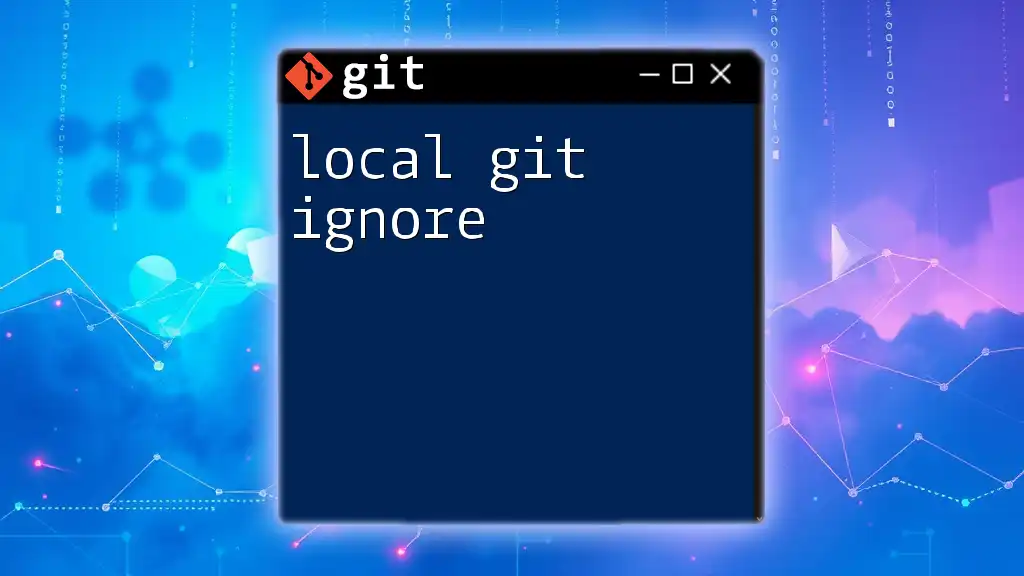
Additional Resources
There are many resources available to help you deepen your understanding of Git and Terraform. Look for tutorials on Git operations and Terraform best practices to enhance your skills further. Tools integrating Terraform with GitHub can also streamline your deployment processes and offer additional functionality.
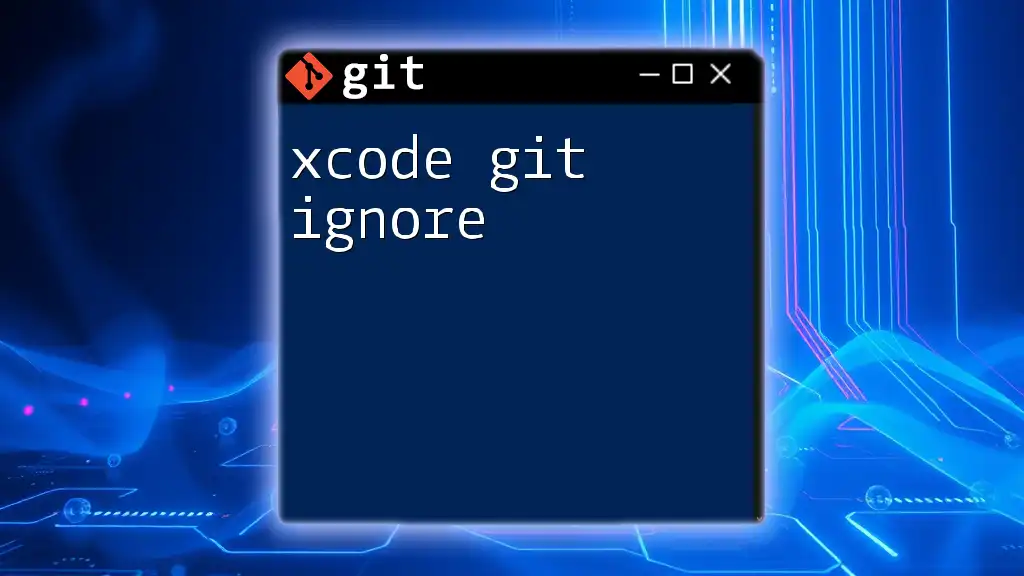
Call to Action
Now that you understand how to implement a `terraform git ignore`, take the time to create or update your `.gitignore` for your projects. Share your experiences, challenges, and feedback on using Git with Terraform to foster a collaborative learning environment in the community.

